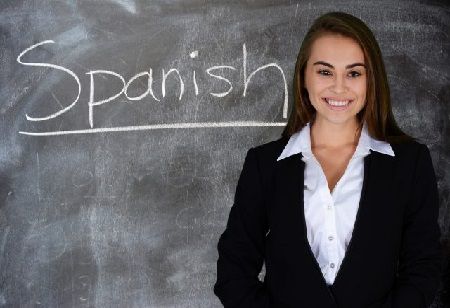- Assistant Prof. Abigail T. Pagalilauan presented her groundbreaking research on Spanish for Specific Purposes (ELEFE) for Filipino virtual assistants at the VII Jornadas de ELE Manila 2025
- Her study proposes a task-based, communicative framework to strengthen linguistic and intercultural skills for remote professionals serving Spanish-speaking clients
- The research drew strong praise for bridging language education with employability, reflecting the Philippines–Spain collaboration in promoting 21st-century Spanish learning
Assistant Professor Abigail T. Pagalilauan, MHist, MTS, a current doctoral candidate at the Universidad de Salamanca, presented her pioneering research entitled “Comunicacion profesional en espanol para asistentes virtuales filipinos: una propuesta didactica en el marco del ELE con fines específicos” in VII Jornadas de ELE Manila 2025. Her presentation tackled the growing relevance of Spanish for Specific Purposes (Espanol como Lengua Extranjera con fines específicos, ELEFE) within the rapidly growing area of virtual assistance and remote work a professional field that has become more and more important for many Filipinos in today's digital economy.
Pagalilauan's research introduces an innovative, task-based, and communicative framework that can be utilized to enhance Filipino virtual assistants' linguistic, pragmatic, and intercultural competencies in performing tasks for Spanish-speaking clients worldwide. By embedding language learning within realistic, work-related contexts, her proposed model focuses on developing communication strategies, cultural flexibility, and workplace interaction competencies fitting the expectations of international clients and employers.
In her presentation, Pagalilauan shared the didactic design of her proposed ELE course on professional communication, using authentic materials from the workplace. These include business emails, online meetings, customer support dialogues, and other communicative situations common to virtual assistance. Her methodology encourages active learning by simulating tasks that mirror real professional exchanges; learners will be able to build up their confidence and fluency in Spanish as they develop industry-relevant soft skills.
Also Read: Asia-Pacific Online Language Learning Market to be Worth $22.5 Billion by 2030
The presentation received a great deal of interest and appreciation from educators and researchers attending the conference, who saluted the originality and practical relevance of the project. Several of them identified that the initiative covers the very important gap existing between language education and employability by structuring Spanish courses in line with newly emerging digital professions.
Pagalilauan's work contributes not only to the growing body of research in Spanish for Specific Purposes but also reflects the evolving relationship between Spain and the Philippines in promoting language learning attuned to 21st-century realities. She thus proposes a forward-looking model with integrated linguistic competence and digital literacy to prepare Filipino professionals for the global remote work environment.
The VII Jornadas de ELE Manila 2025, held on October 24 and 25 at the UST Central Laboratory Auditorium, served as a venue for fruitful dialogue and collaboration among Spanish language educators in the Philippines. Organized by Assistant Professor Royce Randall G. Lim, chair of the University of Santo Tomas Department of Modern Languages, in collaboration with the University of the Philippines Diliman’s Department of European Languages, Ateneo de Manila University’s Department of Modern Languages, Instituto Cervantes Manila, and the Embassy of Spain in the Philippines.
The two-day academic gathering brought together teachers, students, and researchers to share insights, best practices, and innovative approaches in teaching Spanish as a foreign language. Pagalilauan’s participation stood out as a testament to the dynamic evolution of Spanish education in the Philippines, blending linguistic scholarship with practical innovation for the digital age.

